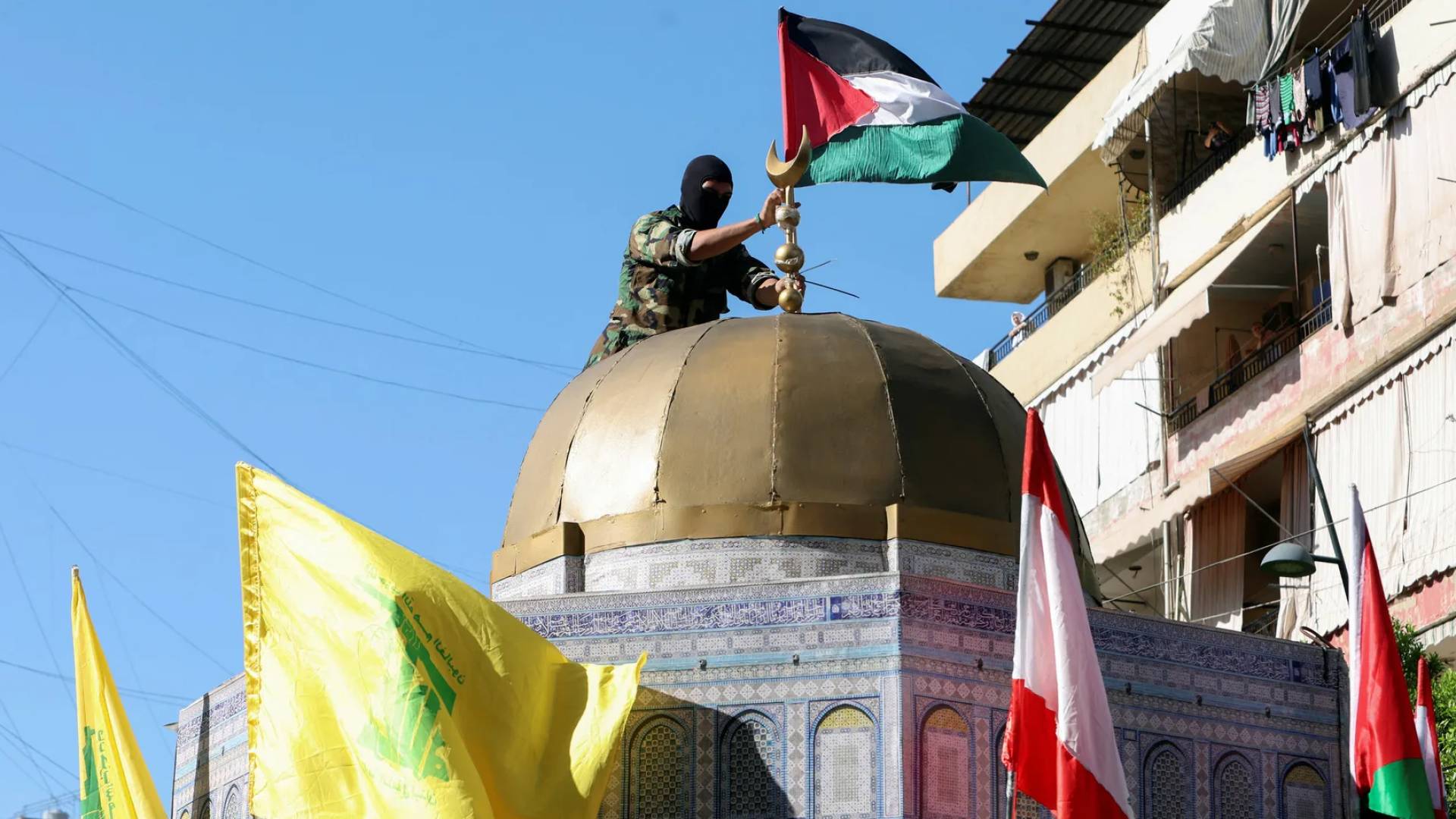Hezbollah buildup could trigger preemptive strike, ‘Israel’ warns
Note: AI technology was used to generate this article’s audio.
- IOF on high alert for potential retaliation after assassination of senior commander Tabbataei
'Israel’s' military is signaling that it may soon pursue a short, preemptive operation against Hezbollah, warning that the group’s expanding military infrastructure in southern Lebanon has reached a point that could compel decisive action.
The warning comes as the Israeli Occupation Forces (IOF) accelerate ground raids deep inside Lebanese territory while bracing for a possible response to the killing of Hezbollah’s number-two commander, Haitham Ali Tabbataei, in Beirut.
According to senior officers cited by Ynet and Yedioth Ahronoth, the IOF believes 'Israel' is approaching the sharpest test yet of the “zero tolerance” doctrine introduced after the October 7 events. Despite near-daily offensive operations by the Northern Command and the Air Force, Hezbollah has continued to expand its capabilities, particularly in villages further from the border.
1,200 Raids, and Still No Halt to Hezbollah’s Build-Up
According to Ynet, over the past year, 'Israeli' Galilee Division troops have carried out around 1,200 ground incursions into 21 frontline villages in southern Lebanon, overt patrols, covert ambushes, and the demolition of tunnels, firing positions, and shafts that survived the IOF’s Operation Northern Arrows.
The scale of activity, which is a clear violation of the ceasefire, along the 140-kilometer frontier, from Rosh HaNikra to Mount Dov, has been unprecedented:
- Three to five raids per day, extending three to five kilometers into Lebanese territory, and occasionally reaching second-line villages.
The IOF kept these operations out of public view to avoid provoking Hezbollah, though officers say the group was aware of each raid. Lebanese tractors often arrived within hours to clear debris; 'Israeli' drones regularly targeted those vehicles, which the IOF claimed were used by Hezbollah operatives.
Senior commanders, many of whom served as junior officers during 'Israel’s' late-1990s security-zone era, say the current campaign has succeeded in avoiding the deadly ambushes and roadside bombs that once defined the conflict. They credit an aggressive operational mindset forged after the 2006 war, when Hezbollah embedded extensive military infrastructure beneath newly rebuilt homes in the south.
‘Entire Terror Villages’ Built After 2006
“Entire terror villages were created between 2006 and 2011,” a senior IOF official said. “When the next war came, they were prepared, and we were not. That mistake cannot be repeated.”
He added that Hezbollah’s Radwan invasion posts, built directly on the border, became a liability for the group once 'Israel' systematically destroyed them during Northern Arrows and follow-up operations leading up to the February 2024 agreement.
A Strategic Dilemma for 'Israel'
The military acknowledges the enormous risk of launching a preemptive strike. Northern 'Israel' has enjoyed months of relative calm.
A new confrontation could reverse that stability within hours, unleashing:
• Rocket barrages on Haifa
• Missile fire reaching Tel Aviv
• Explosive drones targeting the Galilee
• Attack UAVs striking strategic northern sites
“Hezbollah was deterred, not defeated,” a senior officer said. “They still hold enough firepower—even after losing many top commanders—to inflict significant damage.”
Hezbollah’s Response to Tabbataei’s Killing Still Unclear
The IOF remains on heightened alert following Sunday’s strike in Beirut’s southern suburb that killed Haitham Ali Tabbataei, Hezbollah’s second-in-command. Six people were killed and 28 injured.
Hezbollah confirmed his death but did not issue a direct threat of retaliation. 'Israel' has reinforced air-defense systems in the north, though it has not detected specific plans by Hezbollah to launch a major attack.
UNIFIL’s Expected Exit, and U.S. Briefings
IOF commanders say they expect UNIFIL’s mandate to be significantly reduced or terminated, an outcome they welcome. They argue UNIFIL has hindered rather than helped 'Israeli' security and insist Lebanon’s Army cannot reliably enforce restrictions on Hezbollah activity.
“We showed the Americans 350 Hezbollah sites near the border that we dismantled over the past year,” one official said. “We don’t rely on the Lebanese Army in those areas.”
The official added that 'Israel’s' long-term goal must be the disarmament of Hezbollah, which “cannot be achieved through military force alone” but must involve sustained diplomatic and military pressure.




